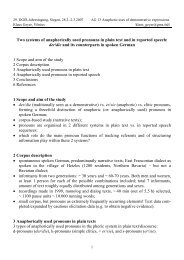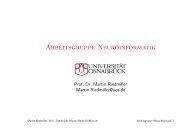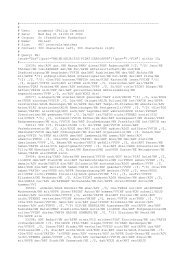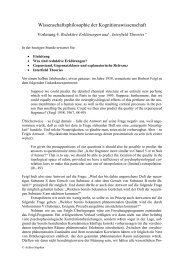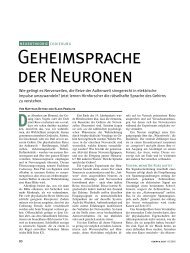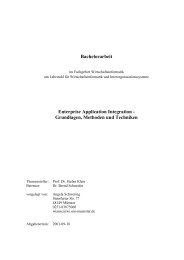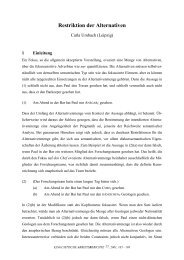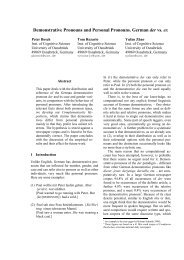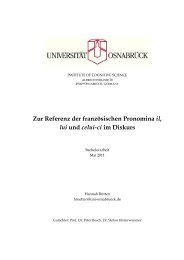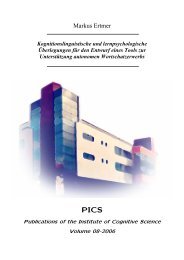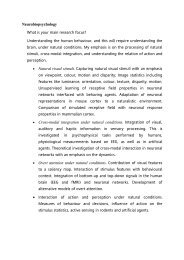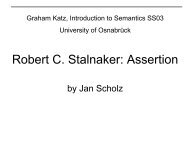Bound and referential pronouns - Cognitive Science
Bound and referential pronouns - Cognitive Science
Bound and referential pronouns - Cognitive Science
You also want an ePaper? Increase the reach of your titles
YUMPU automatically turns print PDFs into web optimized ePapers that Google loves.
An eye tracking study<br />
We wanted to know whether the difference between<br />
bound <strong>and</strong> <strong>referential</strong> <strong>pronouns</strong> can be detected online in<br />
processing – to the extent that processing is reflected in<br />
focussing behaviour.<br />
We only looked at personal <strong>and</strong> possessive <strong>pronouns</strong> in<br />
German – contrasting bound an co<strong>referential</strong><br />
occurrences.<br />
Both types in our stimulus materials had <strong>referential</strong><br />
antecedents <strong>and</strong> their referents visible in the visual<br />
display.<br />
Linguistic stimuli (one set of 12)<br />
Emergency call out in the country.<br />
Today The vet (fem) is coming to see the farmer.<br />
She has come for the sick animals <strong>and</strong> notes that<br />
1 he has not been using the new treatment that she had prescribed.<br />
2 she had not prescribed the new treatment that he has been using.<br />
3 his ideas do not go with her treatment.<br />
4 her new treatment is unlikely to find his approval.<br />
c-comm<strong>and</strong>ed, bound free <strong>referential</strong> Referent 1 Referent 2



